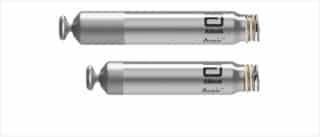
During Spring, we welcome warmer temperatures, extended sunshine, and time outside with friends and family, but it also means that allergy season is in full swing once again. Because allergies can be so debilitating, many sufferers turn to the numerous over-the-counter (OTC) medications intended to relieve allergy symptoms. Most people don’t think twice about taking an FDA approved OTC medication, but for patients with a heart arrhythmia, taking them could have serious consequences.
Three types of allergy medications and their relationship to your heart
Allergy medications are broken down into three smaller sub-categories: antihistamines, anti-inflammatories, and decongestants. Each type of medicine reacts differently with the heart, so it’s important for patients with abnormal heart conditions to pay close attention when browsing the allergy medication aisle.
Antihistamines, which are commonly used to treat symptoms such as a runny nose or sneezing, are generally safe for patients with abnormal heart conditions. However, the FDA has warned that antihistamines taken in conjunction with some high blood pressure medications may cause a spike in blood pressure. Most varieties of anti-inflammatories are also unlikely to cause an adverse reaction when taken in the correct dosage, but overdoses can result in an increase in blood pressure as well.
Decongestants, on the other hand, work by constricting blood vessels in the mucus membrane of the nose. Patients taking decongestants can also experience blood vessel constriction in other areas of the body, putting them at critical risk for an unsafe increase in blood pressure or pulse. Unless instructed by a doctor, patients with high blood pressure or a heart arrhythmia should avoid decongestants, as well as antihistamines that may have a decongestant added to them (designated with a “D” at the end for pseudoephedrine).
Keeping your heart healthy while taking medications
The best advice is to carefully scrutinize any drug that you are considering taking by reading ingredient lists and asking questions of professionals. Patients who are taking many different medications at the same time need to take extra precautions, as they are at an increased risk both for drugs reacting with each other negatively as well as kidney problems.
Get feedback from an expert before beginning an allergy medication regimen
Developing a relationship with a pharmacist you trust is an excellent idea, as they can answer many general questions about the medications and conditions. In order to get a detailed picture of your heart condition and OTC allergy medications, schedule a visit with Dr. Dilip Mathew at Heart Rhythm Consultants, P.A.



